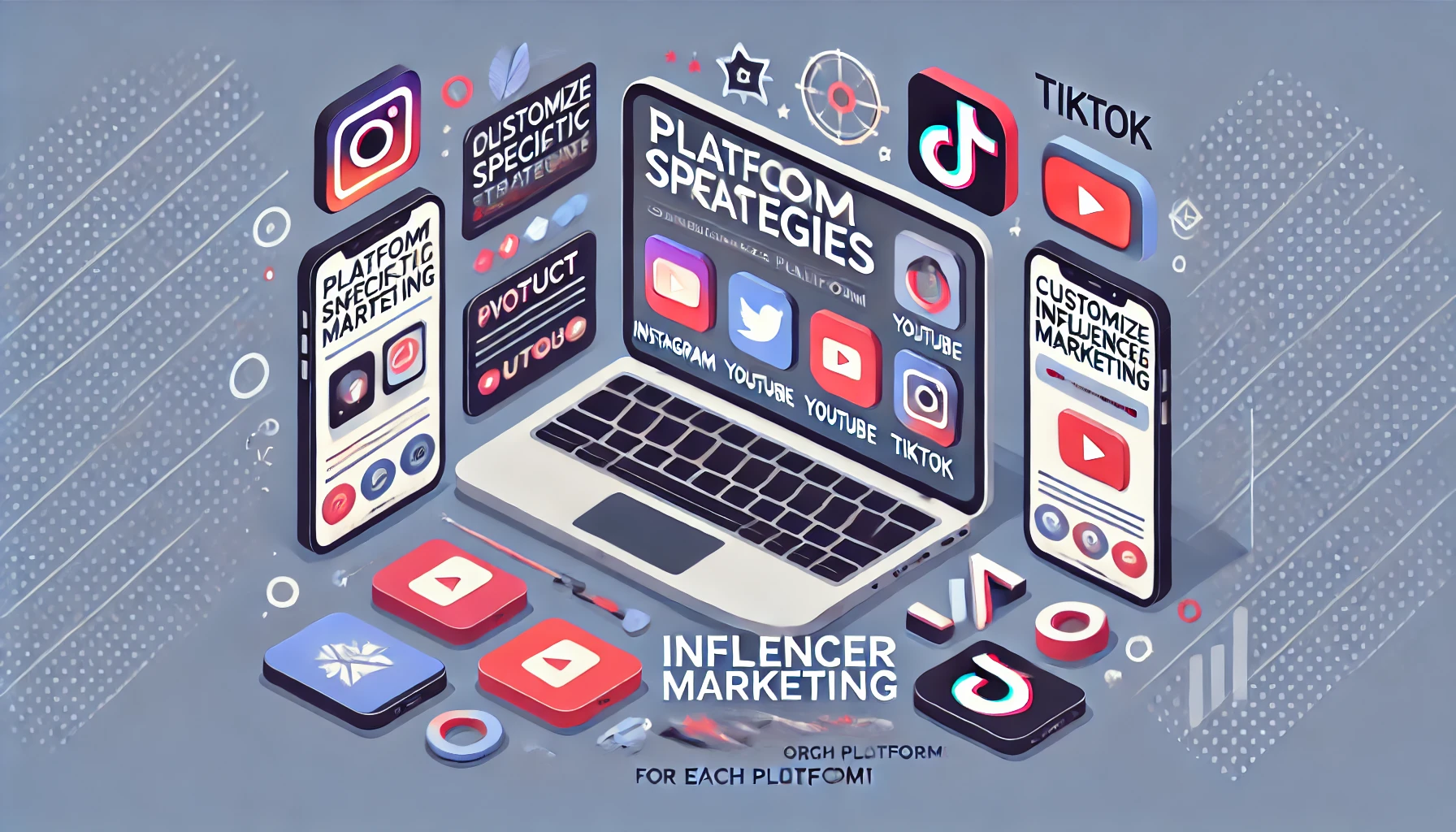How to Leverage Influencer Marketing for Your Brand
Team Chapter-001
Influencer Marketing Specialists

Influencer Marketing
Leverage trusted voices to connect with your audience authentically
In today’s digital landscape, influencer marketing has become one of the most effective strategies for brands to increase visibility, build trust, and drive engagement. Consumers are more likely to trust recommendations from individuals they follow and admire rather than traditional advertisements. By leveraging influencer marketing strategically, brands can expand their reach and connect with their target audience in a more authentic and relatable way.
What is Influencer Marketing?
Influencer marketing is a collaboration between a brand and an individual with a dedicated social media following.
Examples of Influencer Marketing
Sponsored posts featuring a brand’s product.
Product reviews or unboxing videos.
Brand collaborations where influencers become ambassadors.
Giveaways and contests to engage audiences.
Benefits of Influencer Marketing
Partnering with influencers provides several advantages for brands:
Increased Reach and Visibility
Influencers have a loyal audience that trusts their recommendations. Partnering with the right influencers allows brands to tap into new markets and boost brand awareness.
Enhanced Credibility and Trust
Consumers perceive influencer recommendations as more genuine and credible than traditional advertising. This trust leads to higher engagement and conversion rates.
Higher Engagement Rates
Influencer-generated content typically receives higher engagement due to the personal connection influencers have with their audience. Their followers are more likely to like, comment, and share their content.
Better Targeting
By collaborating with niche influencers, brands can ensure their message reaches the right demographic. This increases the chances of conversions.
Pros of Influencer Marketing
Builds trust and credibility through third-party endorsements
Provides access to targeted, engaged audiences
Creates authentic content that resonates with consumers
Increases brand awareness and visibility
Drives higher engagement rates than traditional advertising
Challenges of Influencer Marketing
Can be expensive, especially with high-profile influencers
Results may be difficult to measure accurately
Risk of influencer controversy affecting brand reputation
Potential for fake followers and engagement
Requires ongoing relationship management
Types of Influencers
Understanding the different types of influencers can help you choose the right partners for your brand:
Mega Influencers
Celebrities and public figures with massive followings across multiple platforms.
Macro Influencers
Established content creators with large, dedicated audiences in specific niches.
Micro Influencers
Niche experts with smaller but highly engaged and loyal followings.
Nano Influencers
Everyday consumers with small followings but authentic connections to their audience.
How to Find the Right Influencers
Choosing the right influencers is crucial for a successful campaign:

Strategic Selection
Finding the right influencers requires careful research and alignment with your brand values.
Key Steps in Influencer Selection
Identify Your Goals
C
Research and Shortlist
Before selecting an influencer, define your objectives—whether it's brand awareness, lead generation, or increased sales.
Use Specialized Platforms
Look for influencers who align with your brand’s values and target audience.
Analyze Audience Demographics
Platforms like AspireIQ, Upfluence, and Traackr help brands connect with influencers based on industry, location, and engagement metrics.
Types of Influencer Campaigns
Different types of influencer collaborations can help achieve various marketing goals:
Sponsored Content
C
Product Reviews
Before selecting an influencer, define your objectives—whether it's brand awareness, lead generation, or increased sales.
Giveaways & Contests
Look for influencers who align with your brand’s values and target audience.
Brand Ambassadorships
Platforms like AspireIQ, Upfluence, and Traackr help brands connect with influencers based on industry, location, and engagement metrics.

Platform-Specific Strategies
Each social media platform requires a tailored approach to influencer marketing. Instagram works well for visual products, while YouTube is ideal for detailed reviews and tutorials.
Measuring Success
Tracking key metrics ensures your influencer marketing efforts are effective and delivering ROI:
| Metric | Description | Importance |
|---|---|---|
| Engagement Rate | Likes, comments, shares, and saves relative to follower count | High |
| Reach & Impressions | Number of unique users who saw the content | Medium |
| Conversion Rate | Percentage of users who took desired action (purchases, sign-ups) | Very High |
| ROI | Revenue generated compared to campaign investment | Critical |
Key Performance Indicators
Engagement Rate
Influencers share their honest opinions about a product. This gives potential customers an in-depth understanding before purchasing.
Reach and Impressions
Brands collaborate with influencers to host giveaways. This encourages audience participation and increases brand awareness.
Conversion Metrics
Long-term partnerships where influencers represent and promote a brand over time. This creates a more authentic connection with their audience.
Return on Investment (ROI)
Influencers share unique discount codes or affiliate links. They earn a commission on each sale generated.
Frequently Asked Questions
Conclusion
Tracking key metrics ensures your influencer marketing efforts are effective.



